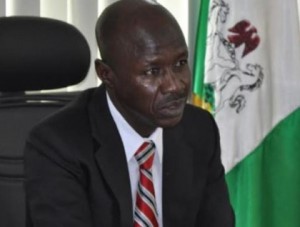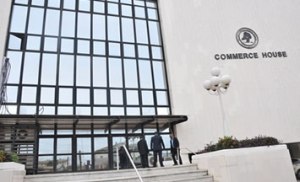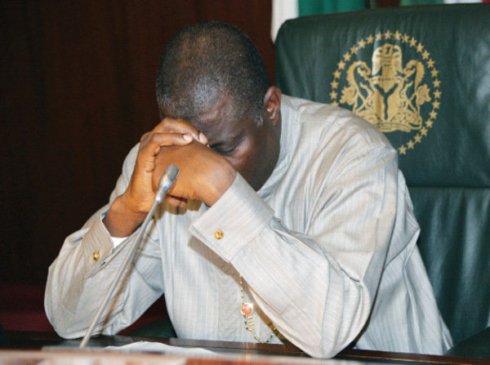
Mr Ibrahim Magu, Acting Chairman, Economic and Financial Crime Commission, (EFCC), declared in Abuja on Thursday that President Muhammadu Buhari would not disappoint in the fight against corruption.
Magu gave the assurance while fielding questions from newsmen on the sideline of a preparatory meeting towards 2018 African Union (AU) conference.
The News Agency of Nigeria (NAN) reports that the meeting focused on Nigeria’s role as the champion of the 2018 AU theme, “Winning the Fight Against Corruption: A Sustainable Path to Africa’s Transformation”.
African leaders had unanimously mandated the Nigerian leader to champion the fight against corruption in the continent, during the 29th Ordinary Session of the AU Assembly in Addis Ababa, Ethiopia.
Magu said that Buhari had demonstrated commendable political will in the fight against the menace, adding that his feat in that war earned him the trust to be chosen by African leaders to champion the cause.
“The fact that this meeting is taking place is an indication that there is an effective political will to fight corruption.
“That the President has been identified as a leader and champion of anti-corruption crusade in Africa only attests to the success of Nigeria’s fight against corruption.
“The recognition has emboldened our fight against corruption; it is encouraging. For the whole world to recognise our President as an anti-corruption champion is something to be happy about.
“You and I know that he (President) is fully committed to this fight. His will to fight against corruption is strong. There is no doubt about that,” he said.
Magu said that the commission would not disappoint the rest of the world, “especially after Nigeria was recognised and given the mandate to lead the fight”.
“Corruption is the enemy of development in the world. African is saying that corruption is the worst enemy of the continent. We want everyone to join this crusade by exposing every corrupt tendency.”
Deputy Chairperson of the African Union Commission, Ambassador Thomas Quartey, who also spoke with newsmen, tasked the media to play a critical role in the fight against corruption in Nigeria.
Quartey emphasised the need for transparency in governance, saying that the attribute was crucial to success in the fight against corruption. (NAN)






 The Lagos Chamber of Commerce and Industry (LCCI), has warned that the economy would lose an estimated N150 billion daily, if the proposed strike by PENGASSAN and NUPENG is not averted.
The Lagos Chamber of Commerce and Industry (LCCI), has warned that the economy would lose an estimated N150 billion daily, if the proposed strike by PENGASSAN and NUPENG is not averted.


